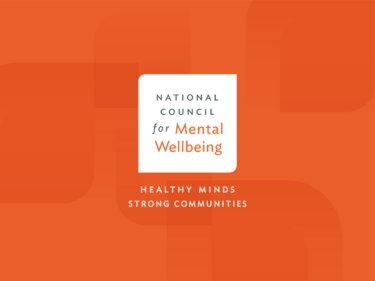Holding Space for the Spectrum of Experience
Public health communications campaigns have long played a pivotal role in helping to address substance use across America. However, by adopting a more refined health equity lens, we can leverage these campaigns to address systemic disparities and stigmatized attitudes. This approach enhances the campaigns’ effectiveness in positively impacting the wellbeing and recovery of individuals at risk for, or experiencing, substance use challenges.
This is the second of two articles on increasing health equity in communications campaigns targeting addiction and substance use challenges. Let’s take a closer look at some of the different health equity approaches and how these recommendations can help to transform conventional substance use communications campaigns into increasingly adaptable and empathetic tools for those navigating the complexities of substance use.
Not Without Context: Including the Social Determinants of Health
No one is without context, and a health equity lens acknowledges the complex relationships and forces that are larger than any one person. Health equity communications campaigns challenge the American cultural belief in rugged individualism: the notion that individuals with substance use challenges should “pull themselves up by their bootstraps.” Rugged individualism incorrectly implies that addiction recovery can be boiled down to intrinsic motivation or self-discipline alone. This perspective sits in stark opposition to a cornerstone of a health equity approach — acknowledgment that age-old systemic social and health inequalities put people in some communities at greater risk of developing substance use disorder than others.
Social determinants of health — such as poverty, education, housing and access to healthcare — greatly influence individuals’ vulnerability to addiction. Pulling from the social determinants of health, campaigns can include the bigger picture in which addiction sits, like historical abuses by the medical community, the increased risks to rural communities and the challenges associated with co-occurring mental health disorders or physical ailments.
Substance use campaigns can avoid perpetuating health inequities by acknowledging how racism and other forms of discrimination unfairly disadvantage certain groups of people. For example, we know from research that adolescents growing up in neighborhoods with more alcohol package stores are more likely to drink. Weaving pertinent contextual and historical information into your campaign copy and creative is central to destigmatizing substance use and any implication that certain individuals or groups are solely to blame for their own alcohol and drug use behaviors.
I Know What You Need: The Trap of Paternalism
Equitable communication is a two-way process of both talking and listening. Being overly prescriptive in your recommendations of what is “best” or “right” undermines the autonomy and personal experience of the individuals you are looking to engage. Paternalist communications convey an air of superiority, often taking the form of limiting the behaviors or choices given around addiction treatment without regard to the individuals involved. We often see this play out in the assumption of a single campaign goal, such as abstinence only. For some, the goal may not be abstinence but harm reduction, improved social functioning or emotional wellbeing. Health equity campaigns work to personalize and vary their calls-to-action to more equitably and effectively meet individuals where they are.
In fact, we see non-paternalist and health equity principles assumed within models of person-centered care that emphasize the need to listen to the unique wants and needs of the individuals involved. Instead of assuming the objective, engage in mindful listening and a joint decision-making process to customize healing options to a person’s goals. A more collaborative approach to communications campaigns leaves room for the inclusion of not only the individual’s own goals, but their identity separate from their substance use, including other aspects of their life like physical health, mental health and spiritual beliefs.
One Size Does Not Fit All: Embrace the Multiple Pathways to Recovery
There is no silver bullet or “one-size-fits-all” solution to alcohol and other drug use challenges. Health equity campaigns avoid binary frames such as clinical versus nonclinical services. They embrace the truism that the methods of healing and even the definitions of recovery are as varied as the people who experience them. Health equity approaches focus on the autonomy of the individuals and the myriad of solutions available to them. More times than not, healing from substance use challenges means mixing and matching a combination of treatment and service options along winding pathways to recovery and wellbeing.
In offering a plethora of solutions around substance use challenges, individuals may see themselves motivated and energized by multiple healing options, and we know that not all options work for every person at every point along their recovery trajectory. By showcasing these multiple pathways, we acknowledge the individuality of the recovery journey and inspire hope for those navigating their own paths.
Make a Difference One Campaign at a Time
Effective public health communications campaigns have the power to transform the way society perceives and responds to substance use challenges. When underpinned by a health equity approach, these campaigns become more attuned to the diverse needs of the communities they aim to serve, while confronting the systemic discrimination and inequity that persists. By fostering a deeper understanding of the multitude of unique pathways towards recovery and wellbeing, we open the door to a broader tolerance for individual journeys. Moreover, integrating health equity into these campaigns enriches our collective understanding of the intricate realities of substance use, enabling us to support those on their path to wellbeing more effectively and empathetically.
Guest Authors
Director, Practice Improvement and Consulting
National Council for Mental Wellbeing
Alexandra Plante
Director, Communications
National Council for Mental Wellbeing
See bio



